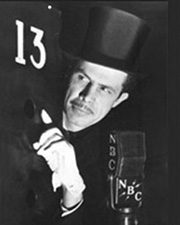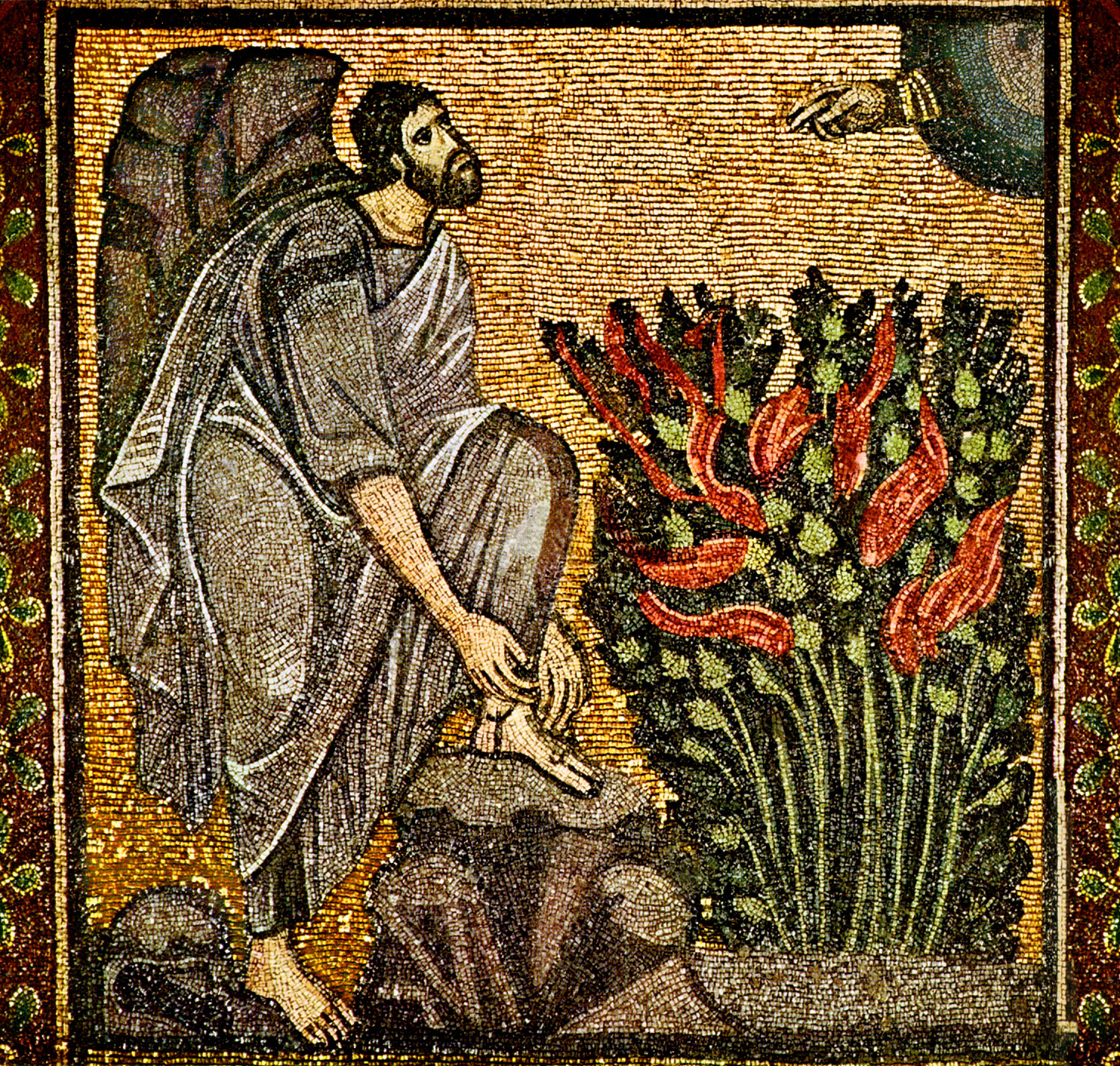Bob Dylan was right:
You Gotta’ Serve Somebody.
If you were listening to the radio in 1941 you would have heard approaching footsteps, a creaking door, and a deep baritone voice saying “You are now entering the inner sanctum.” What would follow would be stories of mystery, thrilling tales of intrigue, clandestine crimes, and ghostly apparitions. “Sanctum” plainly expressed the program’s trajectory: “sanctum” is the Latin word for holy, a place of mystery.
The first time God’s holiness is encountered is in Exodus three. Holiness is the central attribute of God’s character, the essence of who He is. We miss the point if we equate holiness with morality. Holy means God is separate, wholly other, different, or distinct. If you were an Israelite hearing Exodus being read you would know that your God was wholly distinctive from all the other gods, all other viewpoints, and all other beliefs.
Let me set distinction in our own cultural context: I am embarrassed that I know who Kim Kardashian is. She is famous for being. She has not accomplished anything other than gain fame; she just is. To our culture, to be set apart is to be a celebrity. Distinction for us in the U.S. equals entertainment, athletic, or tabloid status. What is biblically distinct is very different than what is culturally distinct.
 Celebrities exist in every age. In the ancient Near Eastern world there were holy people, holy places, and holy things. Status was achieved by being a priest, city, or book which was claimed to be unique, needing rank. Only in Israel is there a holy God. Exodus 3.5 is the center, crux, and pinnacle of the passage (2.23-3.12) as well as the center of Israelite theology. Taking one’s sandals off was an ancient demonstration of humility before a king. So Moses in God’s presence was to remove his footwear. The ground was holy, not because of the place but because of God’s presence. Fire was the display of God’s presence. The flaming sword by The Garden gate, the rain of fire upon Mt. Sinai, or the pillar of fire in the wilderness all mean the same thing—God is here.
Celebrities exist in every age. In the ancient Near Eastern world there were holy people, holy places, and holy things. Status was achieved by being a priest, city, or book which was claimed to be unique, needing rank. Only in Israel is there a holy God. Exodus 3.5 is the center, crux, and pinnacle of the passage (2.23-3.12) as well as the center of Israelite theology. Taking one’s sandals off was an ancient demonstration of humility before a king. So Moses in God’s presence was to remove his footwear. The ground was holy, not because of the place but because of God’s presence. Fire was the display of God’s presence. The flaming sword by The Garden gate, the rain of fire upon Mt. Sinai, or the pillar of fire in the wilderness all mean the same thing—God is here.
God’s distinctive presence is represented in three ways:
1. God is personal (3.6). “The God of” prefix would indicate to anyone in the day an intimate relationship between the follower and his god. “I am” was only used by kings, an indicator of God’s authentic authority.
2. God is active (2.23-25; 3.7-8). The verbs “heard,” “remembered,” “saw,” and “knew” are emphasized twice. God’s intensive participation is well summarized by the oft repeated biblical statements, “Israel’s cry went up” and “God came down.”
3. God is committed (3.7-10). Ten times in a few verses the first person “I,” “me,” and “my” are replicated. Moses will be sent to bring God’s people out of Egypt but the outcome is already a foregone conclusion. The “I am” is also the “I will.”
Moses’ distinctive participation is the only response to God’s presence.
1. God’s people are dependent (2.23-24; 3.7, 9). “Because of their slavery” occurs twice (2.23) an introduction to Israel in crisis throughout the Old Testament. Scripture’s story is God’s story, what He will do, and our dependence upon Him.
2. God’s people are passive (3.4, 6). Human fear in this passage is one of terror, horror. The act of seeing a god in this age was the belief that one would die. In Scripture, Jacob, Manoah, and John expressed the same thoughts: seeing God meant death.
3. God’s people worship (2.23 with 3.12). The word “slavery” and “serve” are the same Hebrew words in these verses. In fact, the words and their derivatives (slave, servant) meant “worship.” One will either worship Pharaoh or Yahweh. Only two choices exist.
Bob Dylan was right, “You Gotta’ Serve Somebody.” Everyone bows the knee to someone even if it means the reflection in the mirror. But we all serve somebody. There are only two roads, two ways, two responses to holiness.
1. Our view of God needs to be biblical not cultural. What we view as distinctive needs to begin with God above not humans beneath.
2. Our view of worship must be focused on the eternal not the temporal. We tend to be sidetracked by others, other viewpoints, other circumstances.
3. Our view of thinking should shift from our way and God’s ways. How Heaven directs people, time, and events is often counter to our own.
The Inner Sanctum ran for over ten years and five hundred episodes. The radio program reminded people there is an otherness, a separate world, something different or distinct. God’s distinction, His holiness, sets Him apart from all others.
God’s holiness means our culture does not dictate our response to celebrity status.
God’s holiness makes clear the choice of who we will worship.
God’s holiness means His way is exclusive; as Jesus said, “no man can serve two masters.”
God says there is His way and all the other ways.
Holiness makes choosing a distinctive choice.
Dr. Mark Eckel teaches God’s holiness in numerous venues including Capital Bible Seminary as Professor of Leadership, Education, and Discipleship.



This article describes exactly the freedom from fear and the worship of all others I experienced!
My Heavenly Father, thank you for Your protection in lovingly reminding me that Truth is the Only Stand Point from which to Fight Victoriously! I used to work for Jesus, today, I have fallen madly in Love with Him. The rest of my life I will serve Him through my pursuit of Holiness. He is taking me on a ride, that for sure! I will make sure I put on my seat belt!
Dr. EcKel,
May God continue to speak mightily through you! May you be strengthened from within, like Shane… “knock down the bully” and move on to the next town.” -Truthfully, Esther Mfonyam